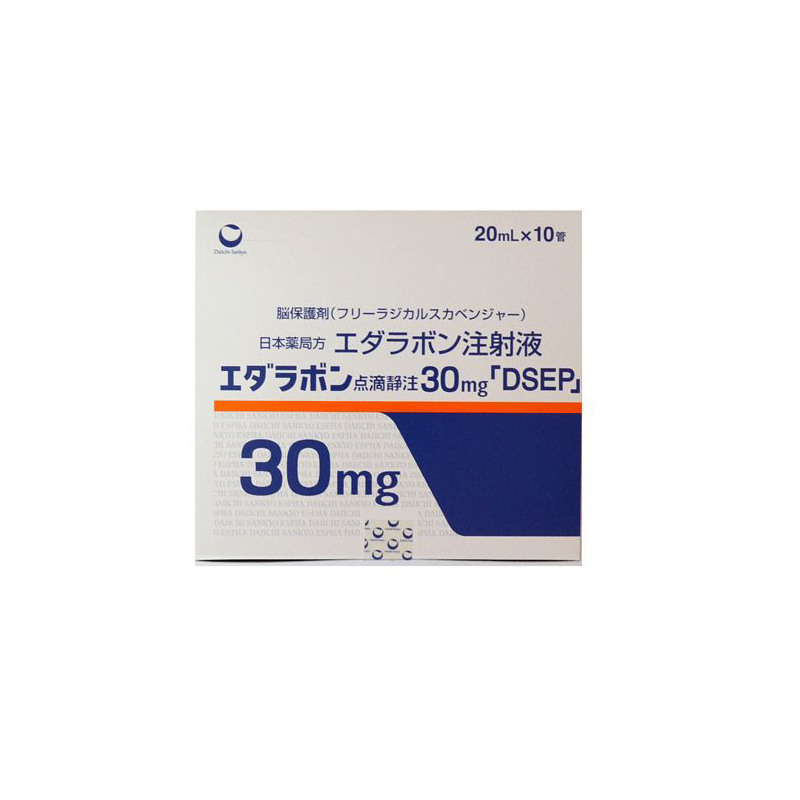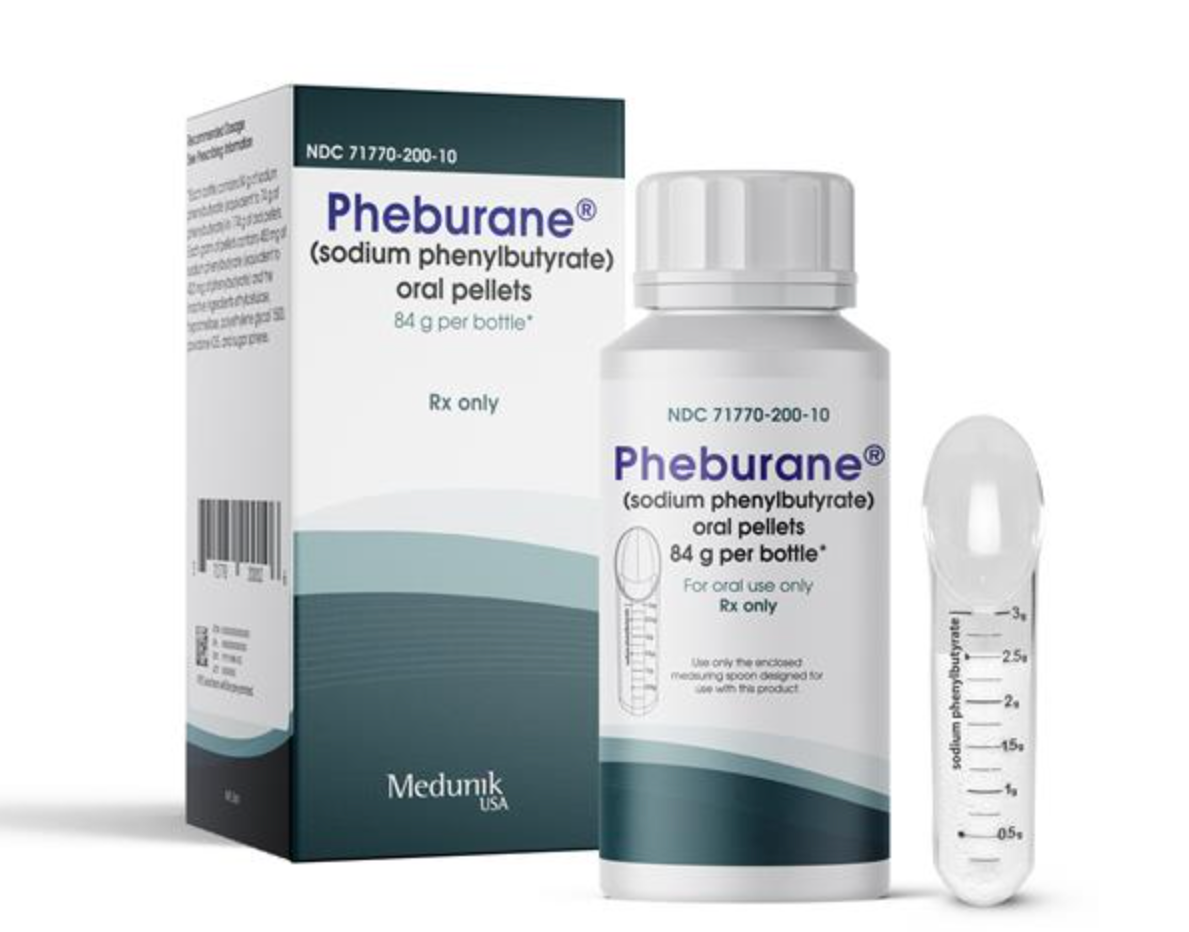Edaravone (Daiichi Sankyo) vs Pheburane (sodium phenylbutyrate)
Edaravone (Daiichi Sankyo) vs Pheburane (sodium phenylbutyrate)
Edaravone, marketed by Daiichi Sankyo, is an antioxidant drug primarily used to slow the progression of amyotrophic lateral sclerosis (ALS), a neurodegenerative condition. In contrast, Pheburane (sodium phenylbutyrate) is a medication designed to treat urea cycle disorders, which are genetic conditions that affect the body's ability to remove ammonia from the bloodstream. When deciding between these medications, it is crucial to consider the specific condition being treated, as Edaravone is specific to ALS, while Pheburane is aimed at managing a completely different set of metabolic disorders.
Difference between Edaravone and Pheburane
| Metric | Edaravone (Daiichi Sankyo) | Pheburane (sodium phenylbutyrate) |
|---|---|---|
| Generic name | Edaravone | Sodium phenylbutyrate |
| Indications | Amyotrophic lateral sclerosis (ALS) | Urea cycle disorders |
| Mechanism of action | Free radical scavenger | Ammonia detoxification by alternative pathway |
| Brand names | Radicava, Radicut | Pheburane |
| Administrative route | Intravenous | Oral |
| Side effects | Headache, gait disturbance, bruising | GI disturbances, body odor, headache |
| Contraindications | Hypersensitivity to edaravone or excipients | Hypersensitivity, severe hepatic impairment |
| Drug class | Neuroprotective agent | Ammonia scavenger |
| Manufacturer | Daiichi Sankyo | Lucane Pharma |
Efficacy
Edaravone and Its Efficacy in Amyotrophic Lateral Sclerosis (ALS)
Edaravone, marketed by Daiichi Sankyo, is a medication that has shown efficacy in the treatment of Amyotrophic Lateral Sclerosis (ALS), a progressive neurodegenerative disease that affects nerve cells in the brain and spinal cord. The drug is believed to work by relieving oxidative stress, which can damage neurons and is thought to play a role in the progression of ALS. Edaravone was approved by the U.S. Food and Drug Administration (FDA) in May 2017 for the treatment of ALS based on clinical trials that demonstrated its potential to slow the decline in physical function in patients with this condition.
The pivotal trial that led to the approval of Edaravone for ALS was a six-month, placebo-controlled study conducted in Japan. The study showed that patients receiving Edaravone experienced a smaller decline in the Revised ALS Functional Rating Scale (ALSFRS-R), which measures the progression of disability, compared to those receiving a placebo. This finding suggested that Edaravone could help preserve motor function in individuals with ALS, although the extent of its benefit varied among patients.
Subsequent analyses and post-hoc studies have aimed to identify patient subgroups that might benefit most from Edaravone. These analyses suggest that patients with early-stage ALS, those with less progression at baseline, and those with a shorter time since symptom onset may experience greater benefits from the treatment. However, it is important to note that while Edaravone has shown efficacy in slowing the progression of ALS in some patients, it is not a cure for the disease and does not reverse the damage already caused by ALS.
Pheburane (Sodium Phenylbutyrate) and ALS
Pheburane (sodium phenylbutyrate) is a medication that has not been traditionally associated with the treatment of ALS. It is primarily indicated for the management of urea cycle disorders, which are genetic disorders that lead to the accumulation of ammonia in the blood. However, there is ongoing research into the repurposing of existing drugs for off-label use in diseases like ALS, where there is a significant unmet medical need. As of the knowledge cutoff date, there is limited evidence on the efficacy of Pheburane for the treatment of ALS, and it is not approved by regulatory agencies like the FDA for this indication.
Research into the use of sodium phenylbutyrate for ALS is still in the early stages, and more robust clinical trials would be necessary to establish its efficacy and safety for ALS patients. Any off-label use of Pheburane for ALS should be approached with caution and under the guidance of a healthcare professional with expertise in the management of ALS. Patients and caregivers should be aware that off-label treatments may carry risks and that the benefits and potential outcomes are not well-established in the absence of extensive clinical trial data.
Regulatory Agency Approvals
Edaravone
-
Pharmaceuticals and Medical Devices Agency (PMDA), Japan

Pheburane
-
European Medical Agency (EMA), European Union

-
Food and Drug Administration (FDA), USA

Access Edaravone or Pheburane today
If Edaravone or Pheburane are not approved or available in your country (e.g. due to supply issues), you can access them via Everyone.org.
How it works

Make an enquiry
Choose the medicine you want to buy, answer a couple of questions, and upload your prescription to speed things up. We’ll get back to you within 24 hours.


Make an enquiry
Choose the medicine you want to buy, answer a couple of questions, and upload your prescription to speed things up. We’ll get back to you within 24 hours.


Breeze through the paperwork
We'll guide you through the required documents for importing unapproved medicine, ensuring you have all the necessary information.


Get a personalized quote
We’ll prepare a quote for you, including medicine costs and any shipping, administrative, or import fees that may apply.


Receive your medicine
Accept the quote and we’ll handle the rest - sourcing and safely delivering your medicine.

Some text on this page has been automatically generated. Speak to your physician before you start a new treatment or medication.
Let's talk
If you have any questions, call us or send us a message through WhatsApp or email:
Contact us




